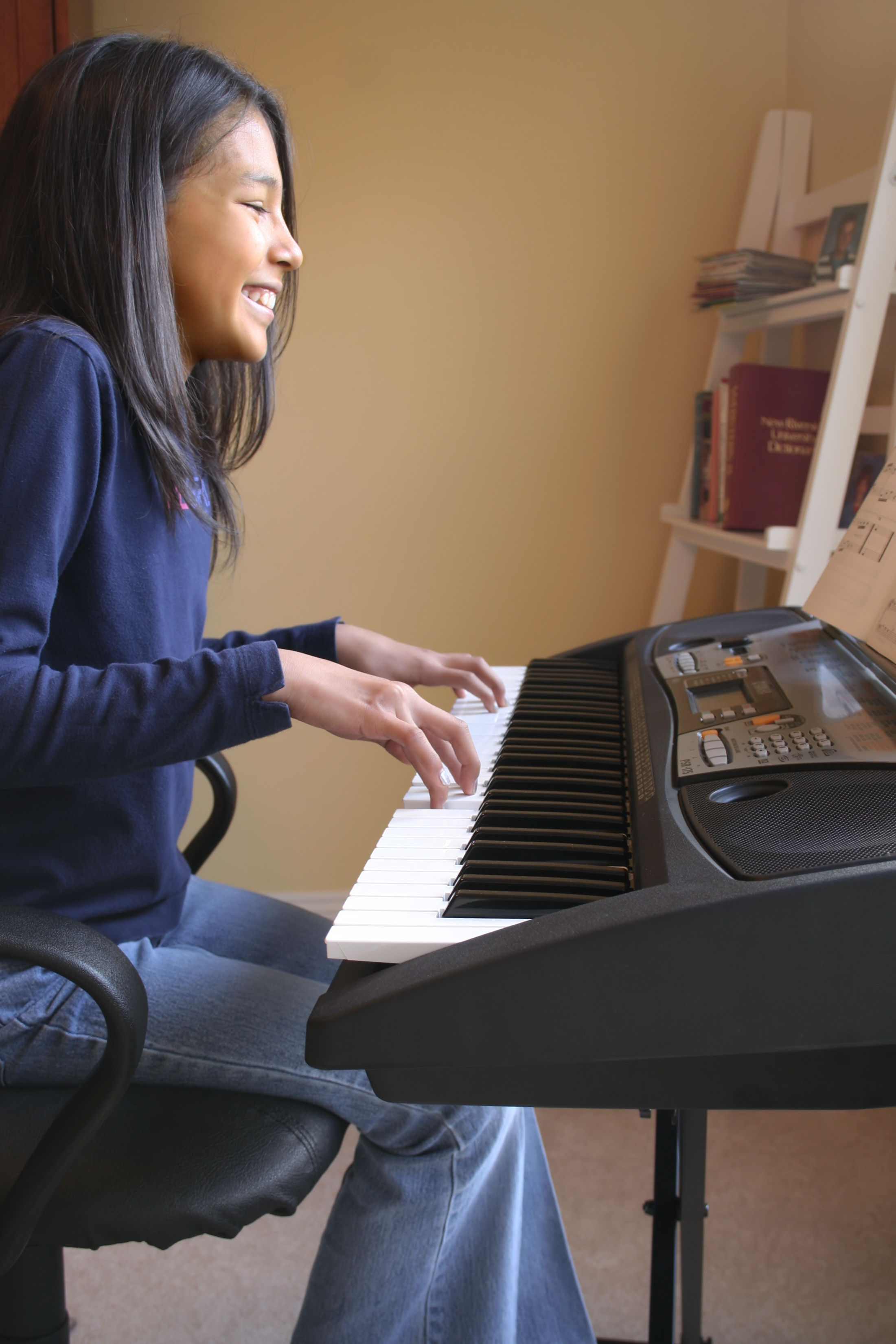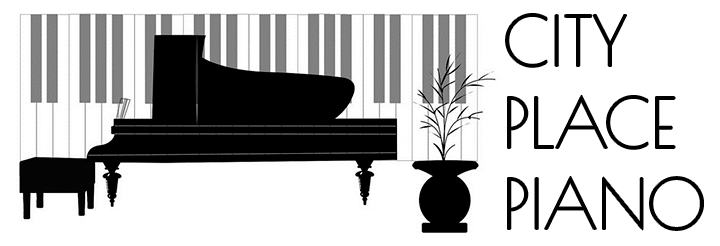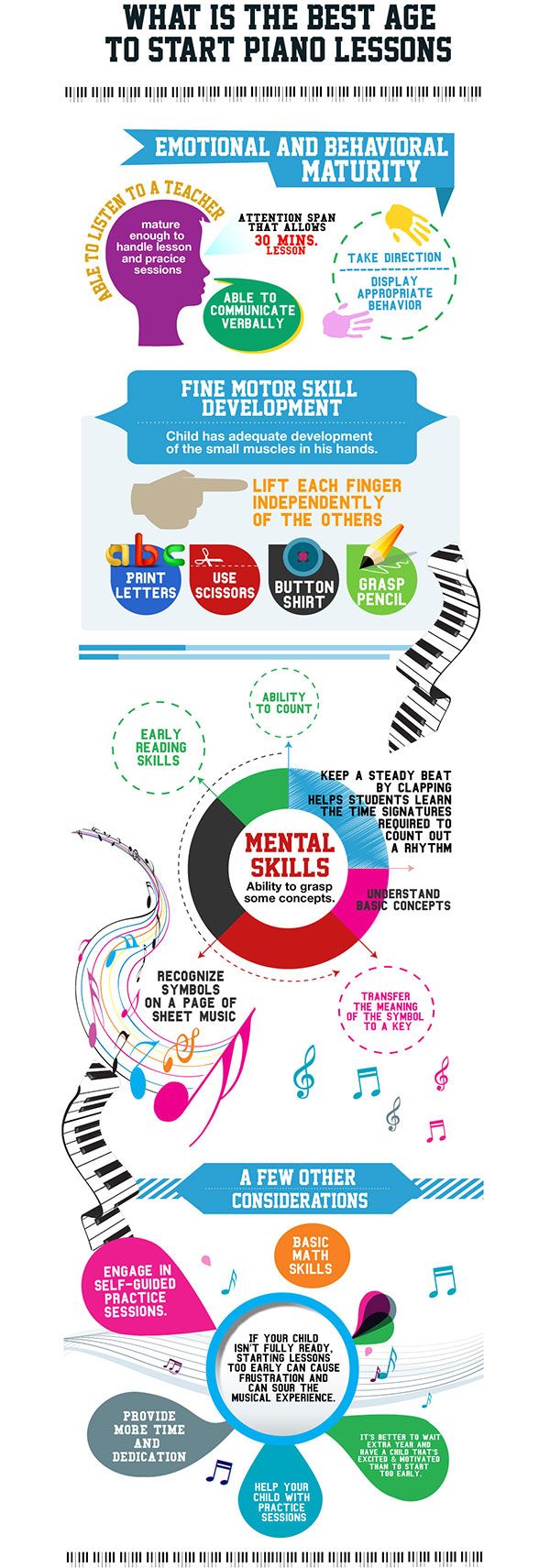
The piano is often the first musical instrument introduced to a child. Learning to play can be fun and exciting, as long as the child is mature enough to handle the lesson and material. So, what’s the Best Age To Begin Piano lessons? While there’s no one “right” answer, here are some basic guidelines.
Emotional and Behavioral Maturity
Some kids are ready for piano lessons at age four; others may be seven or eight before they’re mature enough to handle the lesson and the practice sessions required to gain skill. Before beginning piano lessons, your child should:
- Have an attention span that allows for a 30 minute lesson.
- Be able to listen to a teacher, take direction and display appropriate behavior.
- Be able to communicate verbally.
- Be excited to learn new skills.
Fine Motor Skill Development
Learning to play the piano requires motor skills that many children under the age of four or five don’t possess. To see if your child has adequate development of the small muscles in his hands, see if he can:
- Lift each finger independently of the others.
- Print letters
- Use scissors
- Button a shirt
- Grasp a pencil
Mental Skills
Playing the piano requires the ability to grasp some concepts that only come with maturity and age.
The ability to recognize symbols on a page of sheet music and transfer the meaning of the symbol to a key on the piano is critical. Most children begin playing “let’s pretend” around the age of five. If your child can assign an object an imaginary role, such as turning a building block into a “car,” then he’s developed this skill.
Your child should be able to understand basic concepts such as “up,” “down,” “high” and “low” in order to start reading music and recognizing the different tones of notes on the piano.
Letter recognition and early reading skills are very helpful when learning notes. The piano uses the first 7 notes of the alphabet; knowing the proper order of at least those letters helps with understanding the positions of the keys.
The ability to count and keep a steady beat by clapping helps students learn the time signatures required to count out a rhythm.
A few other considerations
While some children as young as age four might be ready for piano lessons, you need to consider your ability to help your child with practice sessions. The younger the child is, the more time and dedication you’ll need to provide in order to make his lessons effective.
Children who have started the first grade (typically around age 5-6) are able to read the assignment book and engage in some self-guided practice sessions.
Basic math skills (addition and subtraction) come in handy when learning about quarter notes, half notes, etc. While not strictly necessary, these skills make learning tempo easier.
If your child isn’t fully ready, starting lessons too early can cause frustration and can ultimately sour the musical experience. It’s better to wait an extra year and have a child that’s excited and motivated than to start too early.






